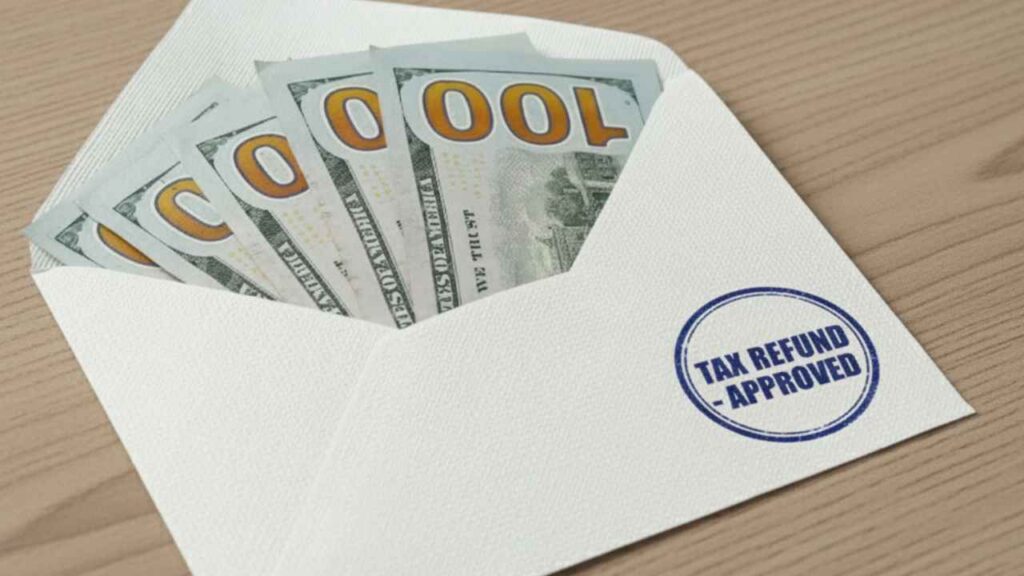As of September, the primary processing cycle for state tax returns for fiscal year 2024 has concluded. Most regular refunds were distributed between February and June of this year, following the usual deadlines of up to 21 days for direct deposits and 12 weeks for physical checks.
However, distribution is continuing in some states due to special tax rebate programs, extensions for natural disasters, or individual case reviews. Find out if you’re living in one of these states and if you qualify to catch one of these checks.
Tax refunds: Let’s start with New York
Eligibility for these programs generally requires filing a tax return on time, not being claimed as a dependent, and meeting certain adjusted gross income thresholds. Direct deposits are the preferred payment method, although paper checks remain an option that carries additional logistical delays.
New York State has launched an inflation rebate check program aimed at providing relief to taxpayers affected by rising costs of living. Payments, ranging from $150 to $400, began distribution in late September 2025.
The individual amount is determined based on the adjusted gross income reported on the 2023 tax return, applying thresholds of $150,000 for singles and $300,000 for couples filing jointly. Payments are issued exclusively through paper checks mailed by post.
Eligibility for the NY tax refunds
Eligibility for this benefit is automatic for all taxpayers who filed their Form IT-201 on time for tax year 2023 and whose income falls within the established limits. The program is estimated to impact more than eight million residents.
State tax authorities pointed out that no action is required on the part of the citizen to receive the payment, and that direct deposit is not offered for this specific program.
Checks are being sent in batches over several weeks, so they may arrive at households at different times starting September. Residents can check the status of their refund and confirm their eligibility through the official portal. This mass distribution process is an exception to the usual fiscal calendar and is a legislative decision based on a budget surplus.
Tax refund programs in Georgia
In Georgia, the third round of budget surplus refunds began in June 2025. While the massive distribution has concluded, as of September 21, residual payments for exceptional cases continue to be processed.
These include taxpayers who requested an extension of the filing deadline or whose returns are subject to further review. The amounts, which range from $250 to $500, are calculated based on the taxpayer’s tax liability for 2023 or 2024.
Payments are made automatically for residents who filed their returns within the regular deadline. The state prioritizes direct deposit for those with a bank account, issuing checks for others. The Georgia Tax Center’s online tool allows taxpayers to check their eligibility and the status of their payment.
Tax rebates in Virginia: checks still available
Similarly, Virginia continues its tax rebate program through mid-October 2025. This program, which began in July, is aimed at taxpayers with a state tax liability above zero for 2024. Amounts can reach up to $200 for singles and $400 for couples filing jointly, limited to the actual amount of liability.
Payments are made automatically, using direct deposit for those who set it up on their regular refund, or by mailing a physical check.
North Carolina in line to deliver refund checks
North Carolina is dealing with an exceptional situation due to the extensions granted to taxpayers affected by Hurricane Helene. Although general processing of individual tax refunds for 2024 concluded in March, the deadline to file without penalty was extended to September 25, 2025, for certain counties.
Taxpayers who took advantage of this extension can expect to receive their refunds in the weeks following their return filing. Estimated processing times for these late returns remain at 21 days for electronic filings and between 6 and 8 weeks for paper returns.
State law requires interest payments if the refund is delayed more than 45 days after the return is accepted. Taxpayers in areas declared affected by the natural disaster should check their eligibility for the extension and track the status of their refund through the ncdor.gov/refund portal.
